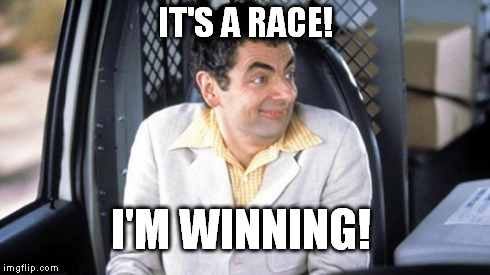Oh look, Sony revoking more licenses for video content that people “bought”.
This is why we prefer to buy physical media, getting a digital with it is nice, but physical is key.
It wasn’t even me was pushing for us to get physical media, it was my spouse. Of course my plex server the house probably helped. But after a few “forever” is only until next month, or shows completely disappearing altogether from any streaming, they started pushing for more physical media.
I think I’m alone with that on here but I don’t really like buying physical media. I get that that way you own it but it’s still just a storage medium with data on it, putting that data directly on my hard drive achieves basically the same thing. Since I can pirate basically anything anyway, I just think that even if a company takes away my access to something digital I bought, I can always just pirate it and I have it again. To me, physical discs are kind of a waste of money, space and resources because of that. I don’t have it anything against people who buy physical media tho, I do get the point of that.
I actually like that thinking, haven’t thought of it that way. Should the day come when Sony decides to kill all digital copies of games people have collected over the years, who’s stopping them from just jailbreaking/rooting/cracking/CFW-ing their console to just download the games they want from dedicated communities who have dumped those games on the internet ages ago?
I did the same thing with my 3DS when the eShop was officially closed, and now I can’t imagine a 3DS without access to anything I could want on there.
Same, and I’ve already had to do this. Google started revoking things I “bought”. When they announced it I immediately went into Google Play, made a list of everything I “bought”, and pirated it onto my home media server.
It’s mine, and it’s on “physical media”, which I call an SD drive in a NAS.
I don’t need or want optical disks of things–they are subject to rot, more so than my NAS, and they are far far more fragile than the NAS+the backups. They take up space and collect dust. If I wanted cover art, I’d own the art and have it on my wall.
You can truly own things, and you don’t have to have plastic covers on a shelf to do that.
I’m with you on most of this except I’m the physical media person, and also run the Plex server for my f&f ;)
I’m going to be setting up a self-host game streaming server soon too, because I won’t -buy- digital-only… but I will pirate it and throw some money at the indie devs when I can!
Good news, physical media can still have revocable DRM
But in addition to offering video streaming, Funimation also dubbed and released anime as physical media, and sometimes those DVDs or Blu-rays would feature a digital code. Subscribers to the Funimation streaming service could add those digital codes to Funimation and then stream the content from the platform.
Okay, I honestly feel bad for anyone not old enough to remember the last few times big media firms pulled this kind of crap. This kind of thing is always a trap, or at best a temporary add-on to the media you purchased. If you buy a DVD or BluRay, anything other than the videos on the medium have a short shelf life. Plus, anything having to do with internet websites are considered disposable by big business*, but doubly so in this kind of scheme.
In the past we’ve had bolt-on features to media that have aged poorly. 1-800 support numbers for video games. Websites with supplementary media. Executable programs on disk that only work on Windows95 or MacOS 9. Console exclusive content. Extra media on disk in formats like Flash. Heck, there are even old cassettes and LPs that have C64 BASIC programs on them. Downloadable game content through redeemable codes. The end result is less a product value-add and more of a novelty.
Then there’s the litany of broken-by-design media, like DivX. And of course, let’s not forget about formats that have no modern release and are only viewable on players that haven’t been made in a dozen years or more.
Yes, Sony/Funimation should be taken to task for misleading advertising. But we should also be vigilant and look for the warning signs too.
(* - If that makes you uncomfortable about IoT devices, you’re paying attention.)
This is nothing new. Buying digital and streaming only versions of media just means you are licensing it. If you care, either break the DRM and reencode, or just pirate it directly.
Digital ownership is a real issue. We need to ensure we own when we buy, or we should not buy
Well, copyright proponents succeeded in persuading the majority of people that buying something you can’t copy or share is still ownership, despite it being against human instincts.
Only instincts matter more, not less, than laws. Because instincts work first.
So in fact they persuaded us that it’s normal to own less, rent more, buy a cat in a bag, buy something without any guarantees, buy something with unclear obligations, because everybody around does that and it’s socially shameful otherwise.
Which is amusingly similar to what fraudsters do.
So the next stage is the amount of obvious fraud from those big copyright-reliant companies increasing. Good night, sweet prince.
Laughs in 64TB Plex server
Someone is going to be a high seas king after this for sure.
🏴☠️ sharing is caring.
Its barely the second month of the year and these companies are nose diving to the fucking bottom.
Enshitification is at phase 2
IIRC, though, that wasn’t Sony’s decision - WB yanked the licenses because Jerry wanted those shows to only be on their streaming platform.
So it’s just irony that Sony is doing the same thing now.
Who the fuck is Jerry?
CEO of Licensing
An autocorrect typo.
Once they sold the copies, then the licenses for those copies were no longer Sony’s or WB’s to yank.
This shit is no different whatsoever from a store owner breaking into customers’ houses to steal back products they’d bought and paid for to settle a payment dispute with a supplier.
This shit is why I won’t buy anything that doesn’t have a physical copy.
I’m happy to rent stuff through a streaming app as long as it’s clear to everyone involved that’s what it is. But if I ever hit a buy button I would require access to it in perpetuity, the same way as a physical copy. But that’s not how that works, so if something is only available as digital media, and isn’t part of a rental platform, I’m not paying for it, end of.
(This mostly deals with games; I don’t spend money on much other media, but I refuse on principle and will pirate if it’s digital only. If it’s an indie studio I’ll donate directly when I can, but I’m not risking a financial loss like that. I can’t afford the risk.)

“The bar you had to clear was on the ground and y’all brought shovels.”
We’re lowering the bar all the way to hell
I am altering the deal. Pray that I don’t alter it any further.
Here is an alternative Piped link(s):
This Deal’s Getting Worse All The Time | Robot Chicken - YouTube
Piped is a privacy-respecting open-source alternative frontend to YouTube.
I’m open-source; check me out at GitHub.
You know what say: if buying isn’t owning then pirating isn’t stealing.
Here’s my risky comment of the day.
I think piracy isn’t like stealing, but it’s still wrong in some interesting and nuanced ways. Just so you know, I’m in no position to judge people for pirating, because I’ve done my fair share of sailing the high seas. However, I would still like to discuss the ethical aspects of piracy and how it compares with stealing.
IMO, calling stealing is completely wrong, but free-riding or trespassing could be more suitable words for this. Obviously, the movie industry would love to compare it with the most severe crime they can come up with, but they certainly have financial incentive behind that reasoning. I’m looking at it from a more neutral perspective.
Stealing has clear and direct harm associated with it, whereas the effects of piracy are more subtle and indirect. Free-riding a bus or sneaking into a circus (AKA trespassing) are somewhat similar, but there’s clear indirect harm. If you watch a football match from the outside of the fence, it’s probably still considered free-riding, but I would put that into a completely different category. IMO it’s also closer to piracy than the other examples.
Most pirates shouldn’t be counted as lost customers, so the argument about depriving the creator of their rightful income is only partially correct. If pirating wasn’t possible, but paying for the movie was, vast majority of these people would prefer to do something else like, go outside and play football with friends. To some extent, piracy still does reduce the demand for the pirated material, so there’s an indirect harm associated with it, and that’s what makes it unethical IMO. Still not wrong enough that I would stop doing it, especially considering what the alternatives are. Again, I have no moral high ground in this situation, and I’m willing to call my own actions unethical. You can call yours whatever you want.
Obviously, the movie industry would love to compare it with the most severe crime they can come up with
Clearly, it’s rape and murder.
You are raping their digital bits by taking them without their consent.
And you are murdering the money they should have had.
Then again, it is traditional to hang pirates.
Source: Pirated pirate movies
It’s literally right in front of them. Why would they not make pirates walk the plank?
Piracy isn’t stealing, the same way riding the subway without a ticket isn’t stealing.
Riding the subway without a ticket would be called, in many jurisdictions, theft of services
It’s nice that they made the distinction between regular theft and theft of services. The harm associated with them isn’t the same, so it would make sense to treat them differently. However, I still think that describing free-riding as a theft of any kind is a bit too harsh.
To some extent, piracy still does reduce the demand for the pirated material, so there’s an indirect harm associated with it, and that’s what makes it unethical
I get your point, especially when it concerns smaller/independent artists. But how would a “fair compensation” look like? Do top selling artists deserve the millions (or even billions) of dollars? Does someone even deserve hundreds of thousands of dollars? Does any artist deserve more money for doing something they love and where they can express themselves than a nurse working night shifts? Is it fair to keep earning money for some work that was done years ago? Does that mean a nurse should get a percentage of the income of every person’s life they helped save?
I think the only ethical thing to do is to decouple consumption and support. E.g. I might support some artist by buying their album (or going to their shows), because I think their voice is important, not because it’s an album I listen the most to. Or I might not pay artists at all and give money to political causes or other people that need support. Or I might support them in some other way etc.
This is a very tricky subject, because determining the value of entertainment is highly subjective. One song might be nothing more than background music to you, but it could be a life changing experience to someone else.
Performing music, theater, circus or something else is in the simpler end of the spectrum, but recordings changed everything. If I come up with a new song and perform it in a club, a one time compensation seems fair. If I record it, that’s when things get messy, and I don’t have a clean answer to those situations.
If I have to draw the line somewhere, I would say it’s fair that the artist gets compensated as long as they’re alive. It’s difficult to compare a recording to other types of transactions, because it’s just so different. Physical recordings are straightforward, but digital ones can get complicated due to how easy it is to copy them.
Nurses working night shifts is a good example of a situation where the compensation does not accurately reflect the importance of the work. How did we even end up in a situation like this? Maybe supply and demand just doesn’t always lead to a fair outcome, or maybe the government didn’t support the right parts of the economy. I really don’t know, but this situation needs to be fixed urgently.
Your idea of decoupling consumption and support is a really interesting one. It seems pretty good, but the more I think about it the more I feel like it might not be sustainable. Every time you watch your favorite movie, you’re getting some unquantifiable amount of entertainment out of it. As long as you feel like you’re getting something, shouldn’t you give something in return? If donations through Patreon were the only way for artists to get money, I don’t think we would have very many high quality movies, series, albums, paintings or sculptures.
How did we even end up in a situation like this?
Capitalism ;)
If donations through Patreon were the only way for artists to get money, I don’t think we would have very many high quality movies, series, albums, paintings or sculptures.
This sounds obvious, because if people don’t need to worry about money they can invest more time and effort into their art.
But a. this does not mean it’s fair. Not within the art scenes (because a lot of people are working hard but don’t have the luck for a breakthrough) and certainly not compared to other jobs.
And b. while a movie like Lord of the Rings or a series like the Sopranos do need a lot of money, many expensive movies are actually rather boring because they have to play it safe in order not to risk a fuckton of money. On the other hand, many great movies had a rather small budget. Avengers: Endgame could have paid for 100x Whiplash or Trainspotting, and I’d rather have more of those. And I think movies/series are the outlier - music is much cheaper to make.
But it’s hard to solve or even discuss all this in some lemmy comment ;-)
I feel like it might not be sustainable
The current system however is definitely not sustainable.
Pirating isn’t stealing because it’s addition not subtraction. You’re creating more of a thing not taking a thing away from someone who had a thing. Actually what Sony is doing here is closer to stealing as people had a thing they purchased and now they don’t.
More like guidelines than actual rules
PaRleyyy!
I’ve been boycotting Sony since the CD rootkit debacle & haven’t regretted my decision yet.
I forgot about that whole thing. For those that need a reminder like me:
Here is an alternative Piped link(s):
https://piped.video/imMRzBzQm1U?si=JI8oEYGIN48E16Bu
Piped is a privacy-respecting open-source alternative frontend to YouTube.
I’m open-source; check me out at GitHub.
Damn i remember that shit.
I lost a very expensive (at the time) CD-RW to that shit.
How’d that happen?
He smashed it in a fit of rage
To shreds, you say?
Was its IDE port rent controlled?
To shreds you say?
Text Resistbot at 50409 and have it write and send a letter to your representatives. All of them.
Just give it a news article and it’s AI whips it up for you to proof read.
Give it a try and make your voices heard.
This is a bad idea to end all bad ideas.
Let’s give them an excuse to close their means of communication to the people to “combat AI spam”.
But does it whip the llamas’ ass?
I couldn’t imagine a faster way to make our voices useless than to fill our representatives’ inboxes with AI spam…
This service is the most dystopian thing I’ve seen in a while.
“You know what’s gonna fix democracy? Reducing civic engagement to having AI generate letters based off AI-generated articles to send to our representatives, who will filter and summarize them using AI, and plug the input into the law-making AI! The downfall of democracy was humanity’s capacity for independent thought!”
And what’s best is they now have a new cell number for marketing they can then sell to companies!
This is the best summary I could come up with:
Funimation, a Sony-owned streaming service for anime, recently announced that subscribers’ digital libraries on the platform will be unavailable after April 2.
For years, Funimation had been telling subscribers that they could keep streaming these digital copies of purchased movies and shows, but qualifying it: “forever, but there are some restrictions.”
But in addition to offering video streaming, Funimation also dubbed and released anime as physical media, and sometimes those DVDs or Blu-rays would feature a digital code.
For people lacking the space, resources, or interest in maintaining a library of physical media, this was a good way to preserve treasured shows and movies without spending more money.
It also provided a simple way to access purchased media online if you were, for example, away on a trip and had a hankering to watch some anime DVDs you bought.
Regarding refunds, Funimation’s announcement directed customers to its support team “to see the available options based on your payment method,” but there’s no mention of getting money back from a DVD or Blu-ray that you might not have purchased had you known you couldn’t stream it “forever.”
The original article contains 420 words, the summary contains 186 words. Saved 56%. I’m a bot and I’m open source!
If what they’re doing isn’t theft, then digital “piracy” isn’t theft either.
I’m down to one streaming service left. Just need to… ahem… acquire the rest of what I want to watch there before I no longer pay monthly for services I barely use, where anything can be ripped away from us at any time.
Never again.
What is left?
Just Hulu. I can’t get it for free, so it’s gotta go. Unfortunately, it’s the only place I can find My Hero Academia in English right now.
Yeah dubbed stuff is harder to find on some sites.
Usually nyaa has most of the stuff.If piracy links aren’t allowed here, mods feel free to delete it, but Kayoanime tries to upload their stuff as dual audio mkvs. https://kayoanime.com/anime-hero-full-dual-audio/
Although I personally would still prefer to pay for everything, I’m sick of having to trawl multiple services for one bloody show… look what they did to pokemon :/























